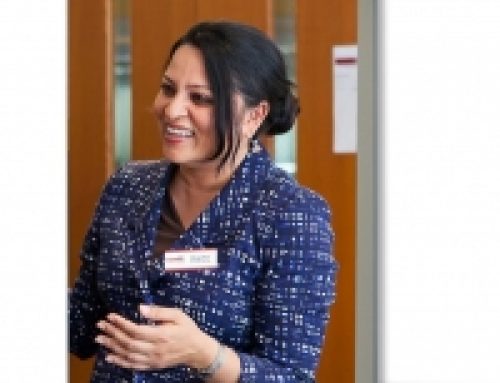Guide For Single Women To Date Successfully
“How Single Women can be More Successful at Dating”
Marla Martenson Interviews Jasbina Ahluwalia
Marla Martenson has been a professional matchmaker working in Los Angeles since 2001, helping countless couples connect with their soulmates and go on to marriage. She is also a certified life/dating coach, author and motivational speaker.
Marla has appeared on the Today Show, WGN Chicago Morning News, San Diego Living, KUSI San Diego Morning, Better TV, Urban Rush and over 40 radio shows including Coast to Coast AM, Playboy Radio and The Cooper Lawrence Show.
Marla is passionate about helping others find that special someone to go through life with, someone that makes life sparkle. She is often asked if she has met her soulmate. The answer is yes! She met my Adolfo through a mutual friend in 2001 and they were married in his home town, Mexico City, in October 2002.
_____
Marla Martenson
(00:19): Hey, everyone. It’s Marla Martenson. You are watching another episode of Conversations with Cupid. Today, we’re talking matchmaking. I am with Jasbina Ahluwalia. She is with IntersectionsMatch.com. That’s her business. Jasbina is known worldwide as the one and only service focused on East Indian singles. Isn’t that right, Jasbina?
(00:49): That’s right.
Marla Martenson
(00:51): It’s exciting. I get your newsletter and you are doing searches for people all over the country and the world.
(00:59): That’s right. We’ve expanded to North America now. We have clients who are straddling continents. It’s very exciting.
Marla Martenson
(1:07): You’re pretty effective, right? When people want a certain thing, they’ll go anywhere.
(1:11): Yes. I’ve done a lot of speaking at different events. I’ve found that people sometimes misunderstand something. It’s that our matchmaking clients are pretty much Indian American or Indian Canadian. Some of them are very open to meeting non-Indians. I know that you know that, because we sometimes collaborate.
Generally, my clients are very open to meeting non-Indians. It’s definitely not about Indians having to meet Indians. Some of our clients want to meet other Indians exclusively. Some of our clients are very open to non-Indians. It’s really a mixed bag, but our clientele for matchmaking is pretty much Indian.
Marla Martenson
(1:48): Tell us how you found your mate. On your website, it said, “Isn’t it interesting being both Indian and American? We’re told, ‘Don’t date, don’t date, don’t date.’ And then, ‘Okay, now get married.’” You didn’t date. You focused on your career. You weren’t interested in an arranged marriage. Then what happened?
(2:14): When you’re focusing on your career, friends, family and sports and you’re not really dating, you find yourself in your late 20s with not that many prospects in sight. That was my story. I focused on other things. Then it came time. I thought, “Okay, I’m ready. Now what?” Like you said, I wasn’t interested in arranged marriage.
It wasn’t resonating with me. I did want to select my own partner. I did what I call my “adventures of dating.” I basically did everything. I met people in all different ways, including online dating, which is how I ultimately found my husband. I did online dating, setups with friends and meeting people out and about. I took all different avenues. They are the things that I encourage our clients to do, which is to utilize all avenues.
Marla Martenson
(3:11): I think that, if you’re looking for a partner, especially if you’re a woman and you want a family, you need to really be proactive about it. A lot of women nowadays think, “I have all the time in the world. I see women having children in their 40s.” Little do they know, a lot of these women are celebrities who have millions of dollars to pay the best doctors for fertility treatments. They get the idea that there is no time limit anymore for a woman.
(3:42): The women do get penalized more than men in that sense. I encourage women to look at this as a lifestyle design. What do I want in my life? Then back up. What do I need to do to get it? It’s like we do in every other area of our lives. The women we work with have applied this. They didn’t just get their careers. They didn’t just get into grad or undergrad school by thinking, “If it’s meant to be, it will happen.”
That’s not what we do in any other area of life. It’s not likely to happen in this one either. I think being proactive is important. It’s empowering. If we’re sitting back, waiting for something to happen, how empowering is that? I’m a big fan of approaching this whole thing from an empowered mindset. Part of that is knowing what you want. Then you need to figure out, “If I want this in my life, what do I need to do to get it?” That’s empowerment.
Marla Martenson
(4:39): It’s about knowing what you want in your life but not having too long of a list, such as, “The guy has to be this, this and this.” That’s where a lot of women will get stuck, don’t you think?
(4:48): Absolutely. Sometimes women use those lists to protect themselves. It’s a defense mechanism. Happily married people are with people in these unexpected packages. I tell ask clients, “What are the three most important things to you?” Notice that I don’t say, “What are the 20 or 30 most important things to you?” It forces you to think, “If I can only have three things, what would the most important be?”
Anytime we find someone with those three things then we give them some more time and interaction. Maybe they’re it. We think, “They’re in this package that I wouldn’t have anticipated, but that’s my guy.” That happens all the time. Apart from those three, the rest fall by the wayside when you really get excited about someone. They’re not really that relevant. When we apply that kind of checklist and rule out so many people, our pool becomes tiny. From that, those people need to want us, too.
Marla Martenson
(6:02): That’s something you have to realize. Are you what they’re looking for, too?
(6:09): We have men and women as clients. With women, height tends to be one of the first physical characteristics that come up. We’re talking about six feet and up. That’s only 12% to 15% of the population that meet that. If we’re starting with 12% to 15%, what about everything else that you want? They also need X, Y and Z. When we narrow it down to two or three guys on the planet, that’s a problem. They have to want us, too.
Marla Martenson
(6:40): George Clooney is taken now, everyone.
(6:43): That’s how 10 years goes by and we say, “I still can’t find him.” That’s exactly how it happens.
Marla Martenson
(6:53): I always try to get women to loosen up on that height thing. Even the tiniest ladies will be 5’1” or 5’3”. They say, “I’m always in heels. I like 6’3” and up.” I say, “I hope you have a very good relationship with your heels and they keep you warm at night.”
(7:14): I’m about 5’ 8.5”. You’re tall as well. Indians don’t tend to be the tallest, generally speaking. When you have the woman who is 5’2” who says, “I want a guy taller than I am,” that’s okay. But then you hear, “I want him to be 5’9” and above.” Wait a minute. What happened to the 5’1” to 5’9” spread? I don’t know about you, Marla, but last time I was shopping for shoes, I didn’t see a lot of 8” heels.
What it comes down to for a lot of women is wanting to feel protected. It goes back to women wanting to feel safe. I think it’s important for women to look at that and say, “How else can I feel protected and safe in a relationship?” There is emotional safety. There are a lot of other ways to feel safe beyond the pure physical height of a guy.
Marla Martenson
(8:26): You don’t need him to beat up anyone for you or protect you from a saber-toothed tiger.
(8:30): That’s right. I think it’s really important to think about. I don’t stand in judgment of anyone in terms of what they want. Instead, I say, “Here are the consequences.” Here is your pool. It’s rapidly becoming very small. What can we do to enlarge it? We identify our essentials. Let’s be flexible with everything beyond that.
Marla Martenson
(8:58): It makes me crazy. I see these wonderful men who are between 5’6” and 5’9”. I see these good quality guys who are just being passed over. The women should just open up a little and give it a shot.
(9:27): I like to combine East and West philosophies in what we do. Let’s talk about people who are dating to find a lifelong partner. What is important in that lifelong partner? Let’s focus on the long term more so than what excites us in the moment. I think having that perspective is really important. That’s when things like an inch here or there, or a year here or there, become less important.
Marla Martenson
(10:06): There are women who can be more open with age. Sometimes, women in their 40s will come to me and say, “I’ve been dating 30 year-olds.” Men tend to like to date a little younger. Woman could say, “I’ll go 10 years older than myself.” That opens it up a lot.
(10:24): It opens it up tremendously.
Marla Martenson
(10:27): I also saw on your site that you do customized searches, coaching and online dating support. The prerequisite to online dating support is a Reinvent Your Love Life Consultation.
(10:42): That’s a prerequisite to all of our services. How can I help someone get from where they are to where they want to be without knowing who they are? That is what the Reinvent Your Love Life Consultation is. It’s an opportunity for me to understand who someone is beyond what we call bio-data. It’s beyond the paper. We’re all so much more than that. I need to know who that person is to be able to help them. I don’t offer matchmaking to anyone without it. How can I help someone when I don’t know who they are?
Marla Martenson
(11:16): Yes, it’s very individualized. I only take on male clients as paying clients. A lot of them do need coaching. They’re so successful in business. They might even be a billionaire but they have no clue about dating. You can see why they’re single. You think, “But how did you make $1 billion?” They’re really smart people.
(11:45): It’s incredible. We have blind spots. We have men and women as clients. They are highly successful people. They have achieved tremendous amounts in other areas of their lives. This is something that they haven’t handled yet. I find that they are used to people saying “yes” to them. They’re not used to people pointing out their blind spots. We are in that position.
They hired us to help them and point them out. We’re going to do that. We’re going to give them candid, honest feedback to identify those blind spots. We’re opposite of, “Yes, whatever you say.” We say, “Here’s something to be aware of.” They were likely not aware of it. It’s a blind spot. By definition, we don’t know our blind spots. That includes billionaires and people who have achieved so much in other areas of their lives. That’s where we fit in to identify that and help them.
Marla Martenson
(12:47): Women are so accomplished now as well. We have businesses. We’re doctors, lawyers, astronauts and scientists. I see so many women in their 40s and 50s who have never been married or they’ve been engaged. It didn’t work out and they can’t find the right guy. I’m always shocked. They’re such gems. They’re dynamic women. What do you say to those women? They have it all going on but they’re not finding the right man. What pitfalls do you find keeping them from finding someone?
(13:20): There are a lot of different pitfalls. One is blind spots in terms of what they’re doing and saying, and how it’s landing with people. Sometimes they have no idea. Women friends tend to be cheerleaders for each other. That is great. I serve that role sometimes for our clients, too. But I’m not only the cheerleader. I’m also the one who will point things out.
I won’t say, “Yes, what a jerk.” I will say, “Wait a minute. How did you contribute to this dynamic?” That’s where the real empowerment comes from. If it’s all on him, then there’s nothing we can do about it. Although it’s not always fun to hear, it’s helpful to understand how you contribute to the dynamic. Then we can master it. We can change it and get different results later. That’s one aspect.
Then there is this list thing that we discussed before. Sometimes when someone has held off on marriage, they start to become pickier. Their list expands. As that pool of men diminishes, their list becomes more demanding in terms of what they want. That’s a big reason why some people are having a hard time. I don’t care the age, I’m a big believer in empowered dating. I don’t think any woman should settle.
What she should do is identify those few things that are really important. Hopefully they’re more character based than characteristic based. Identify those. Then be as flexible as possible with everything else. This is not because you want to be fair to all of the guys and give them all a chance. It’s because you want to be fair to yourself and give yourself a chance not to have as many missed opportunities. Those are two of the big ones.
It’s hard to be vulnerable. I don’t care about the age. It’s men and women alike. We might have been hurt in a previous relationship. The whole idea of letting our guard down and being vulnerable again is far scarier than being alone.
Marla Martenson
(15:33): That’s a good point. I’ve had a lot of men tell me this. It always brings up something in me. I get angry when I hear it. A guy told me this last week. He is 63 and doesn’t want to date women over 40. He said that the women in their 40s that he’s met have been bitter and unhappy. They’ve been hurt too many times, so guys are jerks. I know that all women aren’t like this, but I hear it from men. When I keep hearing something, it makes me pay attention to see if there’s something to it.
(16:22): I think there’s a huge gem there with what you just said. It’s not about the number. This is for women who are listening to this in their 40s. If it kills you to hear that, just don’t be that woman. Then you have no issue. Be the 40 year-old who is not that. When you meet this guy, he might jump to conclusions. That’s another issue.
If he doesn’t know you’re 40, you are your best self and you’re the woman who is not bitter and can be vulnerable despite things that you’ve been through, then the fact that you’re 40 doesn’t matter as much. Once we get beyond the child-bearing years, whether you’re 45 or 48 is irrelevant. It’s more about how you are being in the world and presenting yourself. I think that’s crucial. Again, that’s empowering. You have control over that.
Marla Martenson
(17:19): I’m a woman now in my 50s. I got married the first time at 18, the second time at 27 and the third time at 40. I went through every decade with getting married and divorced. The third time was the charm. I’ve been with my husband for 14 years. I started too young. I married one guy just because he was cute. It was based on hormones. It’s all learning. I always had that optimism. I didn’t get bitter. This goes for all areas of your life.
Keep a wonderment, curiosity and child-like energy about you and not drag all of that other stuff in. I remember a man giving me feedback about a woman that I matched him up with. They were both in their 50s. She was going through a divorce. At the dinner table, she told him, “I’m going to take that bastard for everything he’s got. I am going to make his life miserable.” This man thought, “Woah.”
(18:43): He was envisioning himself in that position. People don’t realize this. We get this feedback. What you’re saying and how you’re treating the waiter or waitress is important. The person you’re with is going to think that’s how they will be treated several years down the road.
Marla Martenson
(18:59): Ladies will tell me, “I don’t want to see that guy again. He was rude to the waiter.”
(19:04): Yes. They’re thinking, “That’s what it’s going to be like for me in a few years. That’s how he’s going to treat me.”
Marla Martenson
(19:13): This feedback is so great. When I was dating, I made so many dumb mistakes. I wish I had someone to give me feedback at the time. Singles, if you’re going to work with a matchmaker, take advantage of that feedback. It’s priceless. I have clients who say, “I can take it, even if it hurts. Tell me. I want to improve.” That’s when people can really grow and find out they might be doing things that they don’t even realize.
(19:45): People go to matchmakers because they want access. They want to meet people. But this feedback is the golden nugget. You can meet great women or men, but if you don’t know what to do, this is where the feedback comes in. I think that’s the most valuable part of matchmaking.
Marla Martenson
(20:11): This has been great. Where can people find you?
(20:16): I am at IntersectionsMatch.com. I also want to mention that, while our matchmaking clients are South Indian, our online dating support strategy is for everyone. We have a whole team that runs it. They are of all different ethnicities. It works for everyone. When you go on our site, you will notice that we offer a free ebook for online dating. It has a lot of do’s and don’ts about online dating. Your listeners can take advantage of that.
Marla Martenson
(20:55): Thanks so much.
_____
What do you think?
Would you like to add to the insights shared in the Jasbina Ahluwalia Interview? Share your thoughts in the comments below.
_____





